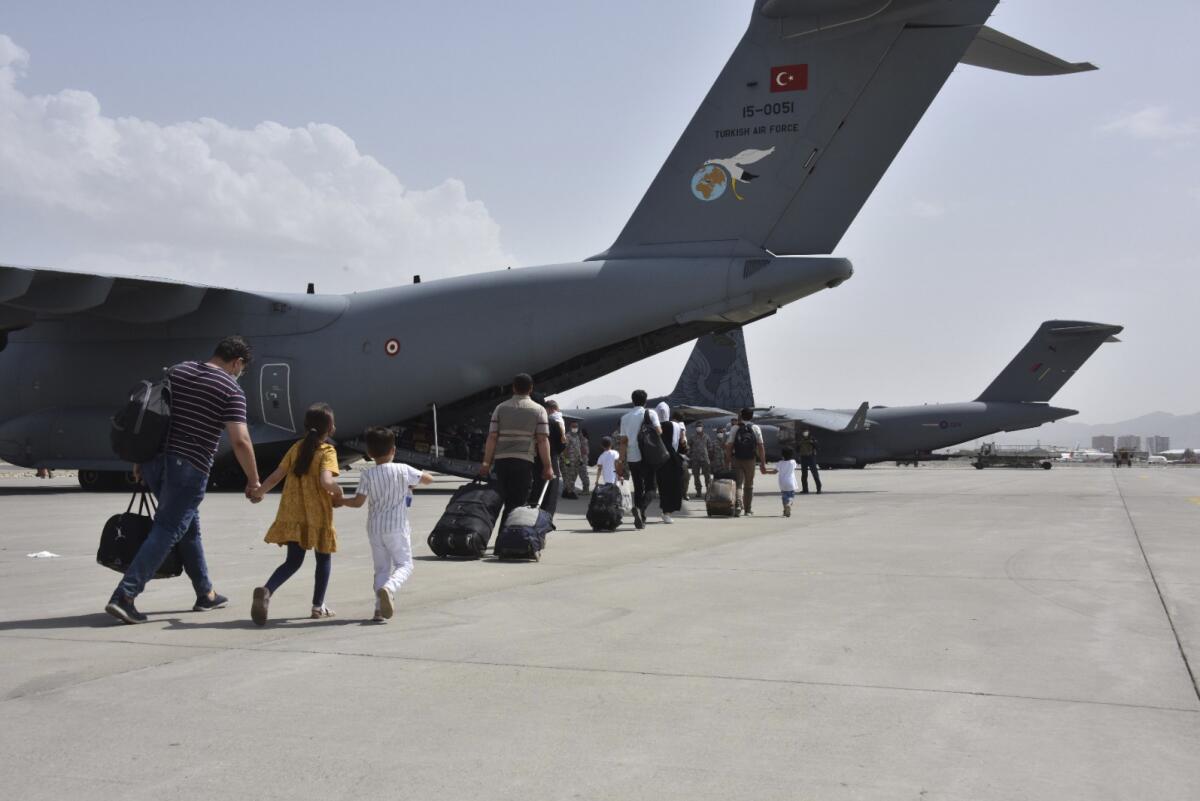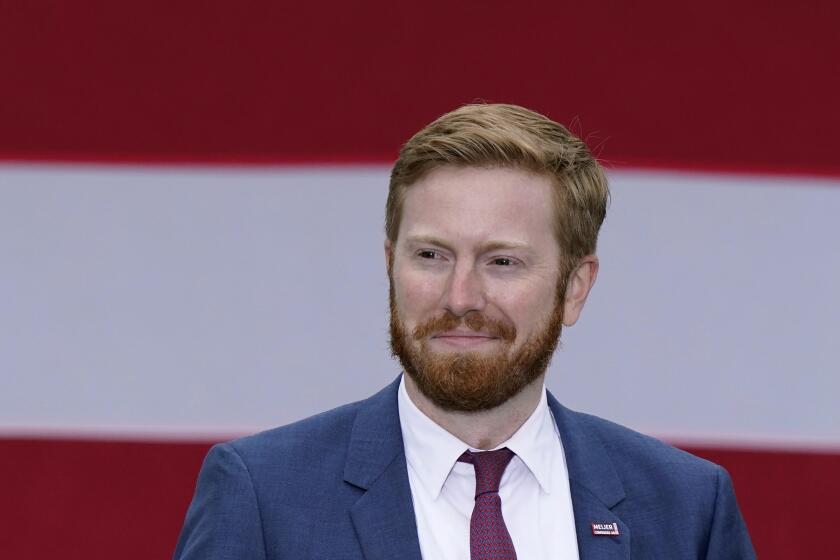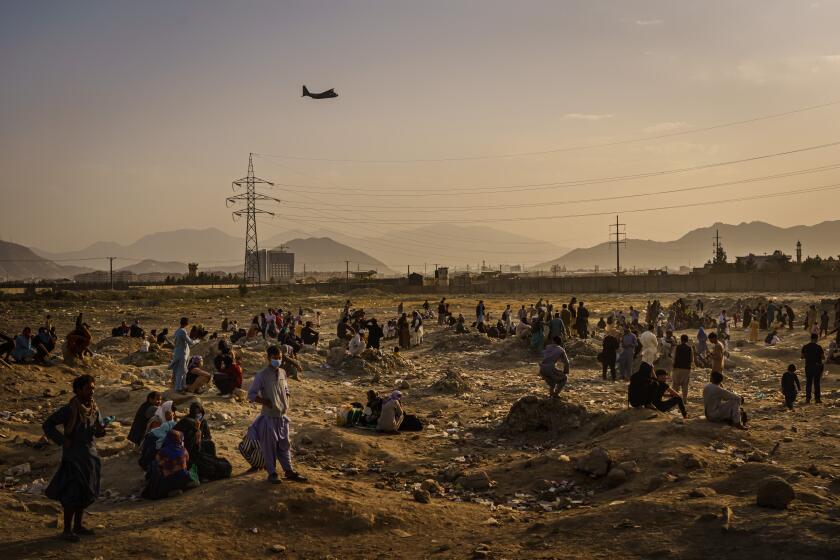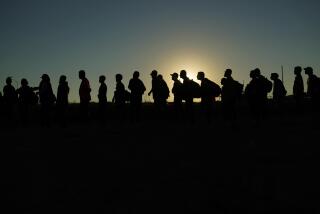Airlines are helping in Afghanistan evacuations. How does that work?

As the U.S. scrambles to complete the evacuation effort in Afghanistan, several of the nation’s largest air carriers have been recruited to help transport American citizens and Afghan evacuees to the U.S.
The Biden administration on Sunday pulled in the airlines to help speed the process through a little-known program called the Civil Reserve Air Fleet.
The program was created post-World War II, inspired by the airlift of food, fuel and supplies by Allied forces in airbases in Western Germany to parts of Berlin that were under the control of Soviet forces. It falls under the authority of the Defense Production Act, which gives the president emergency powers to deploy domestic industries to support military and homeland security efforts, among others.
It was previously activated twice, in Iraq in 1991 and 2003.
How does the Civil Reserve Air Fleet work?
The Department of Defense activated the Civil Reserve Air Fleet on Aug. 22, requesting commercial airlines to volunteer their aircraft and crews to transport evacuees. In Afghanistan, military aircraft are ferrying evacuees out of Kabul’s Hamid Karzai International Airport to U.S. military bases in the Middle East, where they are being processed for resettlement in other countries. From those bases, the commercial aircraft are flying evacuees to their destinations in the U.S. It is unclear how many evacuees will be allowed to settle in the U.S. Canada, the United Kingdom and Germany, among other countries, have pledged to take in thousands of evacuees.
Reps. Seth Moulton (D-Mass.) and Peter Meijer (R-Mich.) flew unannounced into Kabul airport in the midst of the chaotic evacuation Tuesday.
How many commercial aircraft are involved?
The Defense Department said it has activated 18 aircraft, three each from American Airlines, Atlas Air, Delta Air Lines and Omni Air; two from Hawaiian Airlines; and four from United Airlines. The aircraft will be used for the next two weeks, until the evacuation ends Aug. 31.
As international airlifts from Afghanistan accelerate, the airport backdrop is rife with desperation. Only the lucky are able to flee.
What do commercial airlines gain from participating?
In return for taking part, carriers are “given preference in carrying commercial peacetime cargo and passenger traffic for the Department of Defense,” according to the U.S. Department of Transportation.
Are the crews in the planes also volunteering?
The airlines that are participating also sought volunteer pilots and crew to help with the evacuation. Pilots are paid their usual salary for flying aircraft under the temporary guidance of the U.S. military, according to representatives for the Air Line Pilots Assn., who said there was no problem finding enough volunteers to help the evacuation.
“It is an honor serving this vital role bringing U.S. citizens home and ensuring our allies are out of harm’s way,” Todd Insler, who represents United pilots in the Air Line Pilots Assn., said in a statement.
The Assn. of Flight Attendants-CWA posted a message on its website for flight attendants who are considering volunteering for the evacuation effort. “Expect a range of emotions from those you are evacuating,” the post said. “In the wake of an international crisis, feelings are far too strong and complex to be predictable and organized.”
Will diverting aircraft for this effort affect commercial routes in the U.S.?
Atlanta-based Delta Air Lines said the operation won’t affect the current flight schedule because it will deploy spare aircraft for the Afghanistan evacuation. “For decades, Delta has actively played a role in supporting the U.S. military and our troops,” said John Laughter, Delta executive vice president and chief of operations. “And we are again proud to pledge Delta people and our aircraft in support of our country’s relief efforts.”
American Airlines posted a statement saying the carrier “will work to minimize the impact to customers as the airline temporarily removes these aircraft from our operation. The airline appreciates customers’ patience and understanding as it works to accommodate flights.”
United Airlines officials said the company was “assessing operational impact, but expect it to be minimal.”
More to Read
Inside the business of entertainment
The Wide Shot brings you news, analysis and insights on everything from streaming wars to production — and what it all means for the future.
You may occasionally receive promotional content from the Los Angeles Times.













